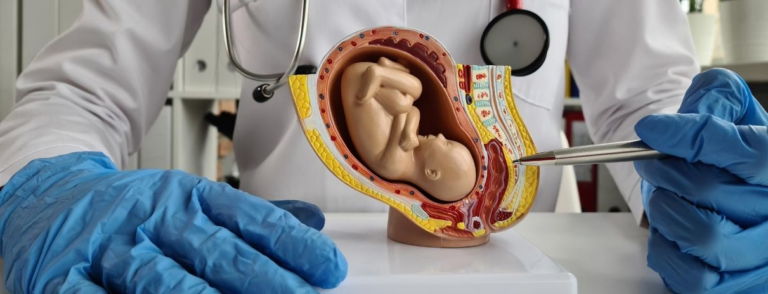Surgical Interventions For Infertility: Procedures And Outcomes
Infertility affects millions of individuals and couples worldwide, posing emotional, physical, and often financial challenges. While advancements in assisted reproductive technologies (ART) have revolutionized infertility treatment, surgical interventions remain a crucial component of comprehensive care. From addressing structural abnormalities to optimizing reproductive function, surgical procedures offer tailored solutions for various infertility factors.
To Know More About It Please Click Here
Diagnostic Laparoscopy
Diagnostic laparoscopy is a minimally invasive surgical procedure used to visualize and evaluate the pelvic organs, including the uterus, fallopian tubes, and ovaries. It is commonly performed to diagnose conditions such as endometriosis, pelvic adhesions, ovarian cysts, and tubal blockages that may contribute to infertility. By providing a direct view of the reproductive anatomy, diagnostic laparoscopy helps clinicians identify and address underlying issues, guiding subsequent treatment decisions.
Laparoscopic Surgery for Endometriosis
Endometriosis, a condition characterized by the presence of endometrial-like tissue outside the uterus, is a leading cause of infertility in women. Laparoscopic surgery is often recommended for the management of endometriosis-related infertility. During the procedure, surgeons can excise endometrial implants, remove scar tissue, and restore pelvic anatomy, thereby improving fertility outcomes. Studies have shown that laparoscopic treatment of endometriosis can significantly enhance natural conception rates and improve outcomes of assisted reproductive procedures.
Tubal Surgery
Tubal factors, such as tubal blockages or damage, can impede the transport of eggs and sperm, leading to infertility. Tubal surgery aims to restore tubal patency and function, either through laparoscopic techniques or microsurgical procedures such as tubal reanastomosis (tubal reversal). By repairing or reconstructing the fallopian tubes, tubal surgery can facilitate natural conception and enhance the success of procedures like in vitro fertilization (IVF). However, the efficacy of tubal surgery depends on various factors, including the extent of tubal damage and the woman’s age.
Hysteroscopic Procedures
Hysteroscopy involves the insertion of a thin, flexible telescope (hysteroscope) through the cervix into the uterus, allowing direct visualization of the uterine cavity. Hysteroscopic procedures play a crucial role in diagnosing and treating intrauterine abnormalities that may contribute to infertility, such as uterine polyps, fibroids, adhesions, and septa. Removal of these structural abnormalities through hysteroscopic surgery can improve implantation rates and pregnancy outcomes, particularly in individuals undergoing IVF or intrauterine insemination (IUI).
Myomectomy
Uterine fibroids (leiomyomas) are benign growths that can affect fertility by distorting the uterine cavity, obstructing the fallopian tubes, or interfering with implantation. Myomectomy, the surgical removal of fibroids, may be recommended for individuals experiencing infertility associated with fibroid-related issues. Depending on the size, number, and location of fibroids, myomectomy can be performed via hysteroscopy, laparoscopy, or open abdominal surgery. Successful removal of fibroids can improve fertility outcomes and increase the chances of conception and successful pregnancy.
Outcomes and Considerations
The outcomes of surgical interventions for infertility vary depending on factors such as the underlying cause, the individual’s age, reproductive history, and overall health. While surgical procedures can effectively address certain infertility factors and improve fertility prospects, they may not guarantee conception or pregnancy success in all cases. Additionally, surgical interventions carry inherent risks, including potential complications such as infection, bleeding, and adhesion formation.
Conclusion
Surgical interventions play a pivotal role in the comprehensive management of infertility, offering tailored solutions for individuals facing reproductive challenges. From diagnosing underlying conditions to addressing structural abnormalities, surgical procedures can significantly enhance fertility outcomes and pave the way for successful conception and pregnancy. However, the decision to pursue surgical treatment should be made in collaboration with fertility specialists, taking into account individual circumstances, preferences, and treatment goals.
Also, Follow us on Instagram







